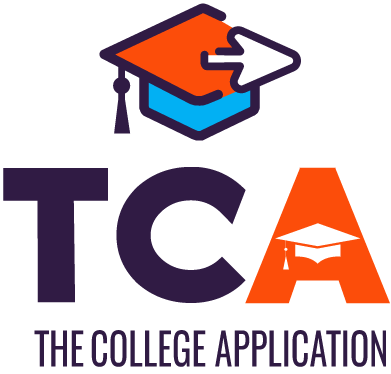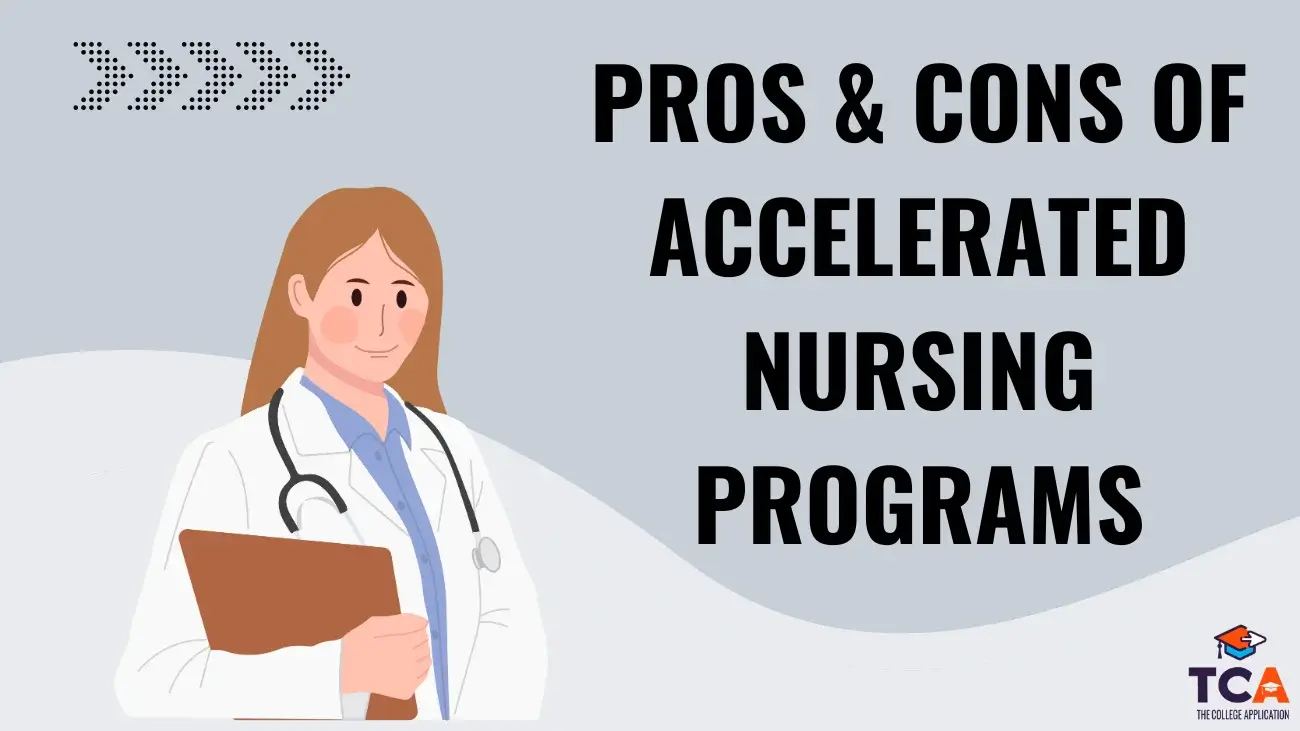Share On
So you are convinced that a nursing career is the next path for you, and you need to look up accelerated programs that can help you make this switch. But what are the pros and cons of accelerated nursing programs?
6 Pros of Accelerated Nursing Programs
1. Shorter Timeframe to Graduation
Accelerated BSN programs take anywhere from 12 months to about 22 months to be completed. Most take 15 months on average. Because of their accelerated nature, you enter the nursing profession much sooner. In comparison, traditional BSN programs take 4 years.
2. Best for Meeting High Nurse Demand
Rising nurse shortages in the country are increasing the popularity of accelerated nursing programs. Several states have doubled down on efforts to expand nursing programs to accommodate more nursing students.
For example, Arizona’s legislature approved $43.1 million to fund 882 students attending five of the state’s accelerated nursing programs.
And with older nurses nearing retirement, accelerated nursing programs will keep soaring in popularity as it is the quickest way to fill nursing vacancies.
3. Earning Good Income Quicker
Because these programs are fast-tracked, it means you graduate and begin earning an RN salary much sooner than graduating from traditional 4-year programs.
US Bureau of Labor Statistics data places the annual average RN salary at $77,600. Obviously, this figure varies with the work setting (is it a major hospital system or is it a small assisted living facility?) and location (Metro vs. Rural).
All in all, you can expect to make a decent income after just about 15 months of an ABSN- not bad!
4. Changing your Career is Easy
By their very nature, accelerated nursing programs are meant for individuals with a non-nursing degree. These programs are sometimes referred to as second degree nursing programs.
Often, people will already be in other careers but decide to crossover to nursing. Accelerated nursing programs help to make this switch. Think about it like a career reset in as few as 12-15 months!
And yes, a lot of people get into ABSN programs to switch careers. In this Reddit thread, you will encounter lawyers, computer scientists, medical students, and other diverse professionals explaining why they transitioned to nursing.
5. Easier Admission Requirements
Nursing program requirements differ from one school to the other. But compared to traditional programs, accelerated nursing programs have generally lower entrance requirements. Many of them do not require a standardized test score- like the TEAS or HESI.
6. Maturer Classmates
If you’re attending an accelerated nursing program, chances are you’re not a high school graduate. You’ve probably worked for a while and developed a great deal of maturity.
In accelerated nursing programs, a majority of your classmates are older, mature, and know what they want in life. They are all intent on pursuing nursing. This makes for insightful classroom interactions with people that share your interests and motivation.
5 Cons of Accelerated Nursing Programs
1. Intense Workload
Put simply, these programs are super demanding! And the shorter they are, the higher the workload. For 12-15 month ABSN programs, it’s not unusual to find yourself spending 40+ hours per week on classes, clinicals, homework, self-study, etc.
Sometimes, ABSN cohorts lose up to a third of students due to the intense nature of the program. MedSurg class, for example, is a significant contributor to students struggling or failing.
And if you decide to hold down a job while attending, be prepared to sacrifice sleeping time. If you can, avoid working during the program to minimize the risk of burnout. Most students take loans to get through or rely on a support system (spouse or family) to manage.
2. High Tuition Costs
Attending accelerated nursing programs often comes with a hefty ticket, including tuition fees, textbooks, and living expenses. Prestigious programs (like NYU) and for-profit schools often have tuition costs alone running over $100,000.
Besides, if you have a non-science bachelor’s degree, you’ll need to factor in the cost of prerequisites.
Those keen on lowering the cost typically opt for the longer ADN/ASN-RN-BSN route. They get an associate’s degree from a low-cost community college, sit for the NCLEX-RN, look for an RN position, then get the employer to pay for the RN to BSN Bridge program.
It’s a longer process than ABSN programs, but it can save you a ton of money.
On the other hand, you could research ABSN programs that are pocket-friendlier. Consider applying to state schools. In New York State, these would be SUNY and CUNY programs. Tuition will generally be under $30,000.
3. Competitive Admissions
Accelerated nursing program cohorts often have limited class spots. Naturally, this makes the application process quite competitive, adding to the stress of standing out from the rest.
For example, the University of Virginia Direct Entry MSN- CLN program receives approximately 150 applications. But they have up to 50 annual seats for the program.
Clearly, you might need to send applications to a couple of schools to increase your chances of getting in.
4. Limited Financial Aid Options
When looking for an accelerated nursing program, you’re better off attending accredited programs. Programs that are not CCNE-accredited (and there are many) do not qualify for federal financial aid.
In other words, if you attend such programs, you will not be eligible for programs like the Pell Grant, Direct Subsidized Loans, or Direct PLUS Loans- that would have otherwise lowered your cost of attendance.
5. Bad Reputation Programs
If you’re not keen, you might settle on just any available school. Because after all, all you need is any program to prepare you for licensure, right?
Bad idea!
Some programs have a terrible reputation, which makes it exceedingly hard for you to obtain clinical placements at top-tier facilities. We’ve come across situations where hospitals reject students coming from these programs. Usually, they tend to be for-profit nursing programs.
And as you might know, clinicals are perhaps the most important part of a nursing program. You not only get direct clinical experience, but it could lead to a post-graduation job opportunity. So, you want a program that will make things smooth for you.
Make sure to look into the “perception” of a program’s degree, among other factors, during your research. The best way is to approach RNs who work in your target facilities to get their opinions on the programs you intend to apply to.
They can also shed light on whether their workplaces prefer a particular nursing school over another.
To Wrap Up
With these pros and cons of accelerated nursing programs, you can now objectively make the right decision. Whether these programs are a good choice for you depends on your interests, time, financial situation, etc.
Ultimately, accelerated nursing programs are the best for quickly transitioning into the noble nursing profession. And we need more qualified nurses in the nation now more than ever!
Related:


